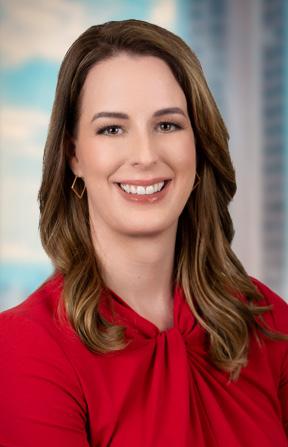
1 minute read
In talent discussion, FICPA committed to ensuring mobility
Since I arrived at the FICPA two years ago, I’ve been focused on the biggest challenge facing the profession –the state of the talent pipeline. By no means is this a new issue. National organizations and state societies have long been aware of the situation and are actively taking steps to ensure the future of public accounting.
Still, as we search for ways to overcome the talent shortage, we’ve seen a specific debate reignited – 150 vs. 120.
Advertisement
Our main story in this issue of Florida CPA Today focuses on the 2023 Legislative Session in Tallahassee, but I also want to draw your attention to three important features:

A look at the AICPA’s Draft Pipeline Acceleration Plan on Page 16.
The aforementioned piece from the AICPA and NASBA explaining the connection between 150 hours and CPA mobility on Page 20.
WEIR president & ceo
You can learn more about the evolution of our profession’s college-credit-hour requirements in our story on Page 20. For context, it’s important to understand how the accounting profession – and the state of Florida, in specific –arrived at the 150-hour mark. After Florida led the way in 1983, the gradual adoption of the 150-hour requirement in the ensuing decades is what transformed accounting from a trade to a profession.
But that still leaves the question of how to move forward. I’ve been clear that I don’t believe there is a single, catch-all solution. The talent question is complex and multi-faceted. We’re going to need variety of solutions and the buy-in of all the profession’s key stakeholders.
At the FICPA, our role is to advocate on your behalf in order to best protect and promote the CPA license. That’s why we are playing an active role in conversations with our national partners and state Board of Accountancy.
And a primer on CAQ’s game-changing Accounting+ initiative on Page 22.
Read together, these three articles outline the clear opportunities for progress and stress the importance of collective action. I sincerely believe the most important steps in the process will be those we take together. If we are to shore up the pipeline, it is imperative that we work with one another – not against each other.
For our part, the FICPA is chiefly concerned about protecting CPA mobility and ensuring the effective regulation of the profession. That’s why we’re excited to work in concert with our partners and why we remain optimistic about the future of the accounting profession. I look forward to continuing this conversation in the months ahead, and I can’t wait to see how the work we do today will pay off in the years to come.









